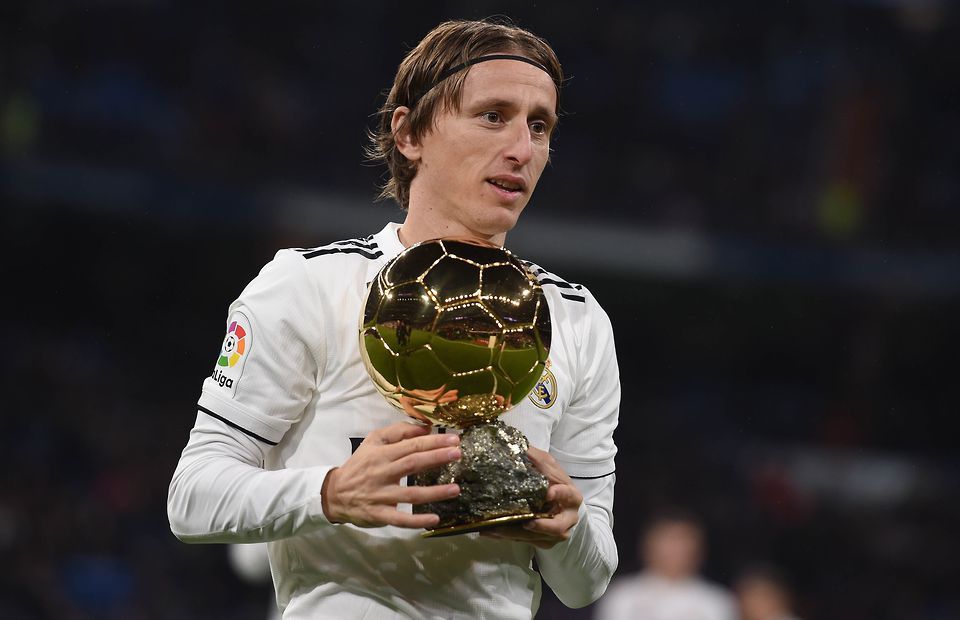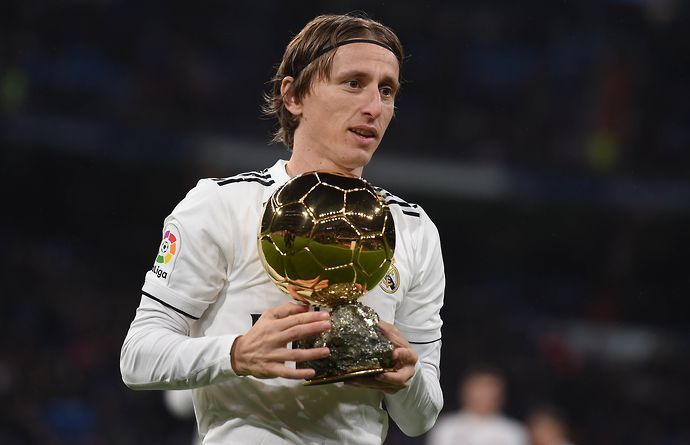Luka Modric has just won yet another trophy with Real Madrid. The Croatian scored and earned the Man of the Match award on his way to helping his team lift the Spanish Super Cup against Athletic Bilbao.
But things haven't always been this way, as the midfielder had an unbelievably difficult start to life back home in Croatia.
Modric was born in the hamlet of Modrici, a small village north of the city of Zadar, the oldest continuously inhabited Croatian city.
Unfortunately for the Real Madrid star, his childhood coincided with the Croatian War of Independence. Due to the conflict, he would go through many traumatic experiences on his journey to becoming a footballing icon.
Modric lived with his grandfather in a small stone house located just north of the Modrici hamlet, while his parents worked long hours at a nearby factory. At just 6-years-old his beloved grandfather was shot dead by Serbian rebels and his family fleed the small village while their house was burned to the ground.
The family were forced to move into a refugee hotel in the town of Zadar, but the war was still ongoing in the province. Modric's father joined the Croatian Army as an aeromechanic, but his mother tried her best to make sure that Luka's childhood was unaffected. Many parents in the area attempted to do the same, allowing the youngsters to enjoy the normal things in life, such as playing football.
Over the next few years, Modric would use football as an escape from the horrific destruction enveloping his homeland. Thousands of bombs were dropped on the city, but the Croatian midfielder focused on developing his skills. His parents were offered the chance to return to their family home but instead opted to remain in Zadar to allow their son to continue his development.
However, it seems his parents weren't necessarily invested in the idea of Modric becoming a professional footballer, and simply wanted the youngster to enjoy his childhood surrounded by his new friends. Modric recalled: "My parents didn't get carried away with the idea that I would become a famous footballer. They just wanted to help their child. After the Storm, their friends returned home, telling them that they should come back, but they replied that they were staying in Zadar to help their son do what he loved, whether he succeeded or not. That is why I am delighted to have such parents."
But after years of watching the youngster, it became clear they could no longer ignore his talent. Although his parents struggled financially, they scraped together money to send their son to representative camps for training. A coach at the camps recommended Modric to one of the biggest clubs in the region, but they declined the offer believing that the player was too small and weak for professional football.
At the age of 16, Modric was then recommended to Dinamo Zagreb by the head of a local youth academy. He was accepted into the team's youth academy and after spending a season with them, was loaned to Zrinjski Mostar in the Bosnian Premier League. Incredibly, aged just 18 at the time, the Croatian would go on to win the Bosnian Premier League Player of the Year award.
The following year Modric was loaned to Inter Zapresic, who like Zagreb, also played in the Croatian top flight. He helped the team achieve second place in the league and a spot in the preliminary round of the UEFA Cup, providing four goals in 18 appearances. The Croatian midfielder also won the Croatian Football Hope of the Year award, the equivalent of a young player of the season award.
In the 2005-06 season, Modric returned to Dinamo Zagreb and signed a ten-year deal with the club. With the earnings from his new contract, he immediately purchased a new flat in Zadar for his family. In his first full season at the club, the midfielder contributed seven goals in 31 appearances, helping Zagreb to win the league.
Modric would continue his fine form into the next season, helping Zagreb to a second league title in as many years and earning himself the Prva HNL Player of the Year award along the way. The following season he was appointed club captain, and incredibly, helped the team to a third consecutive domestic title.
The Madrid legend would finish his time in Croatia with three league titles, a Croatian Cup and a Croatian Super cup amongst a host of individual awards. His performances in his homeland put him on the radar of a string of top teams including Barcelona, Arsenal and Chelsea but the Croatian would eventually settle on the Premier League, signing for Tottenham Hotspur.
VOTE NOW: The GMS December Fan Awards
In 2008 Tottenham would confirm the signing of the Croatian for a fee of £16.5m, equalling the club's record signing at the time. Modric struggled initially with poor form and injuries but the introduction of Harry Redknapp as manager saw the midfielder flourish.
Despite never winning any major honours with Tottenham, Modric was seen as a diamond in the rough. The midfielder made a total of 157 appearances for the London club, scoring 16 goals and registering 21 assists. But it was his style of play and natural talent that shone through, rather than his statistics.
In 2012 Real Madrid announced the signing of Modric from Tottenham for a fee of £30m, where he remains to this day. The Croatian has carved out a legendary career at Los Blancos, helping the club win an amazing haul of trophies whilst also being recognised individually.
His honours include two La Liga titles, a Copa del Rey, four Supercopa de Espana, three UEFA Super Cups, three FIFA Club World Cups and four Champions League titles. He also helped his national team to a World Cup final in 2018, where they, unfortunately, lost to France in a thrilling contest that ended 4-2. But his efforts were far from unnoticed as the midfielder was awarded the Ballon d'Or, ending the monopoly held by Cristiano Ronaldo and Lionel Messi for ten years.
Overall, Modric's career has been an amazing, almost unbelievable journey. From being a refugee in his war-torn homeland to winning a Ballon d'Or at one of the biggest clubs in football history, it's safe to say he has exceeded his parent's wildest dreams. And remarkably at 36-years-old, the journey still isn't over yet.





















